Are you an aspiring author looking to share your captivating story with the world? A book serialization proposal can be the perfect way to engage readers and build a following as you unfold your narrative piece by piece. In this article, we'll walk you through creating an impactful letter template that not only presents your book idea but also entices publishers and platforms to take notice. So, let's dive in and explore how to craft a compelling proposal that sets your work apart!

Clear Pitch and Unique Selling Proposition
A book serialization proposal should focus on presenting a captivating pitch and identify the unique selling proposition (USP). Engaging storytelling can attract readers, aspiring to create a lasting connection. Highlight key elements such as the genre, target audience, and the narrative's thematic depth. Analyze comparable works, explaining how your book offers a fresh perspective or innovative approach, ensuring it stands out in a crowded market. Emphasize the potential for interactive elements like reader feedback or cliffhangers, promoting anticipation for subsequent installments. Establish a marketing strategy that includes social media outreach and collaborations with influencers to enhance visibility, appealing to both avid readers and casual audiences alike.
Target Audience and Market Analysis
In recent years, contemporary young adult fantasy has surged in popularity, particularly among readers aged 12 to 25. This demographic, estimated at approximately 23 million in the United States, seeks immersive storytelling combined with relatable character development. Bestselling titles such as "The Hunger Games" trilogy by Suzanne Collins and "Six of Crows" series by Leigh Bardugo highlight the robust appetite for engaging narratives set in richly constructed worlds. Online platforms such as Wattpad and social media channels like TikTok have further fueled market interest, with viral trends showcasing serialized stories that resonate with this audience. Additionally, local book festivals, such as the Los Angeles Times Festival of Books, indicate a thriving environment for fantasy narratives. By analyzing popular reading trends and identifying key market opportunities, this proposal aims to strategically position the serialized book series to capture and sustain reader interest within this dynamic segment.
Author Bio and Previous Works
Author bios serve as a window into an author's background, illustrating their journey, influences, and literary accomplishments. For instance, notable authors like J.K. Rowling, renowned for the Harry Potter series, and Stephen King, acclaimed for his contributions to horror and suspense genres, have captivating bios detailing their struggles and inspirations that shaped their writing careers. Previous works highlight an author's range and depth, showcasing titles such as "The Casual Vacancy" by Rowling and "The Shining" by King, marking their success in engaging diverse audiences. Moreover, awards received, such as the Pulitzer Prize or Hugo Award, can enhance the author's credibility, establishing their authority in the literary field. Such details ensure that readers and publishers alike appreciate the author's unique voice and expertise, making a compelling case for serialization proposals.
Proposed Serialization Structure and Timeline
Proposed serialization structure outlines the systematic distribution of chapters from the book, ensuring engaging content delivery over a specified timeline. Weekly releases (for instance, every Wednesday) can maintain reader interest and encourage ongoing discussions. Each installment might contain approximately 5,000 words, carefully chosen to create cliffhanger moments, compelling characters, and intricate plots, keeping readers eagerly anticipating the next section. A twelve-week timeline allows for a comprehensive exploration of the narrative, providing ample time for promotion via social media platforms like Instagram and Twitter. During this period, engaging visuals, quotes, and character insights can enhance readership engagement, ultimately driving readers towards the final published work.
Marketing and Promotion Strategy
Creating a comprehensive marketing and promotion strategy for a book serialization can significantly enhance visibility and readership. Social media platforms, such as Facebook, Instagram, and Twitter, can be leveraged to build an audience; targeted advertisements can reach potential readers interested in similar genres. Collaborating with book bloggers and influencers can provide valuable endorsements, driving traffic to the serialization. Email marketing campaigns can offer exclusive content to subscribers, increasing engagement. Scheduled virtual events, such as live readings or Q&A sessions on platforms like Zoom or YouTube, can help foster a community of fans, encouraging word-of-mouth promotion. Additionally, utilizing platforms like Goodreads can facilitate reader interactions and reviews, further amplifying outreach before the official release of each serialized installment.
Letter Template For Book Serialization Proposal Samples
Letter template of a serialization proposal for a historical fiction series.
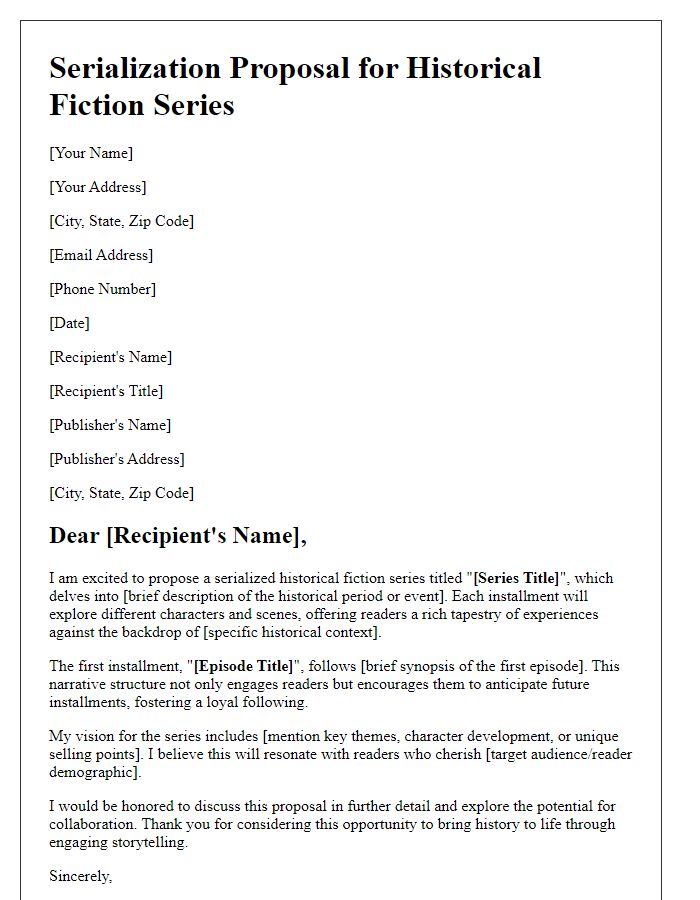
Letter template of a serialization proposal for a science fiction anthology.
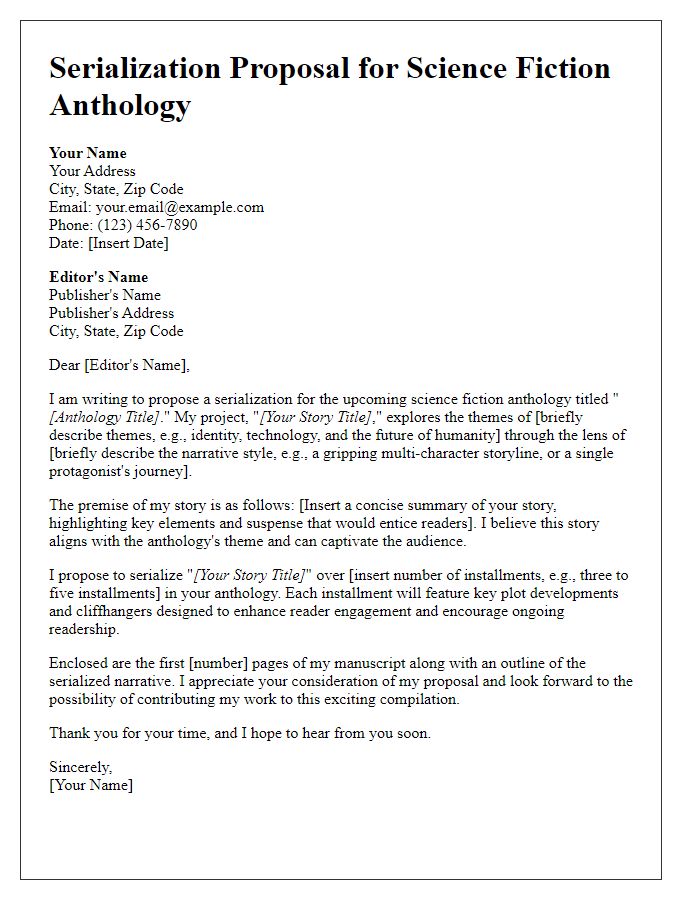

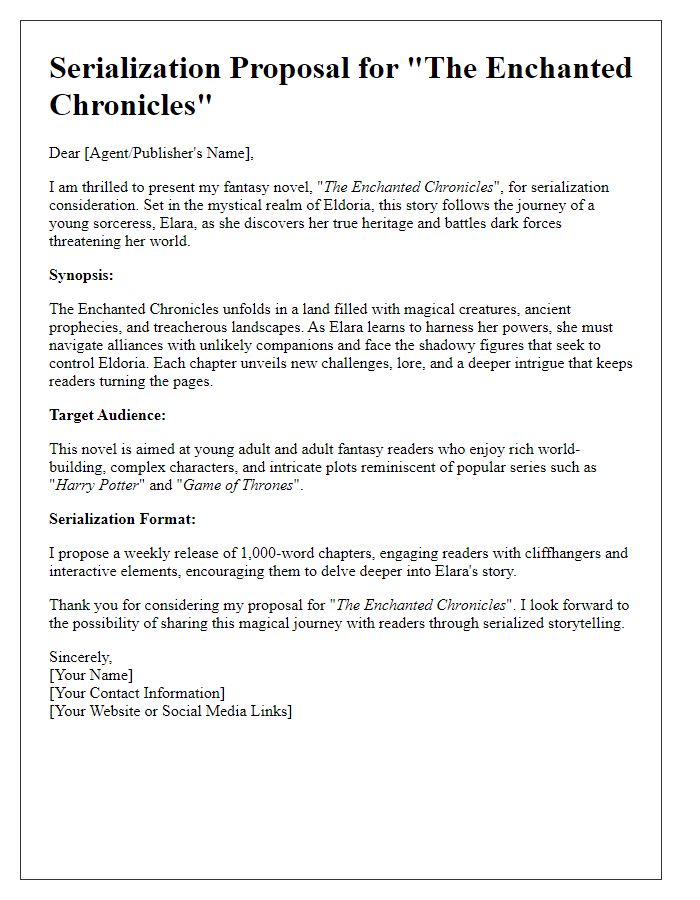
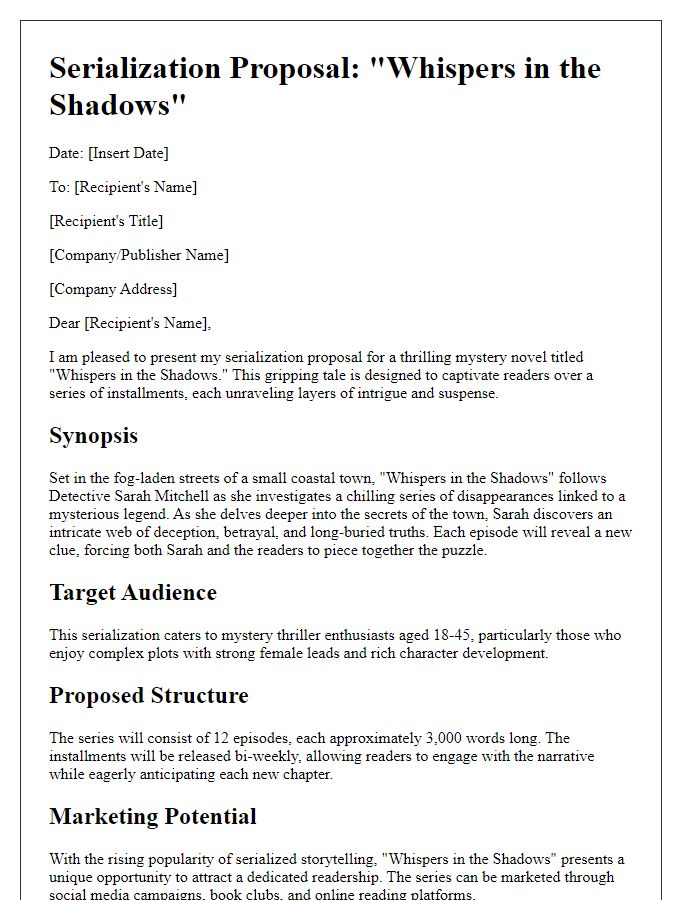
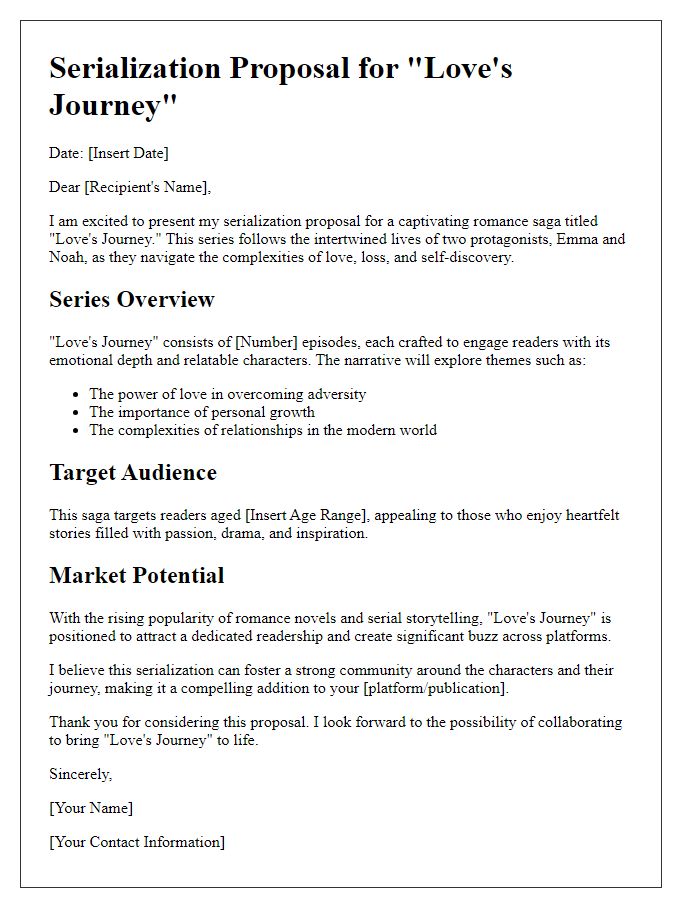
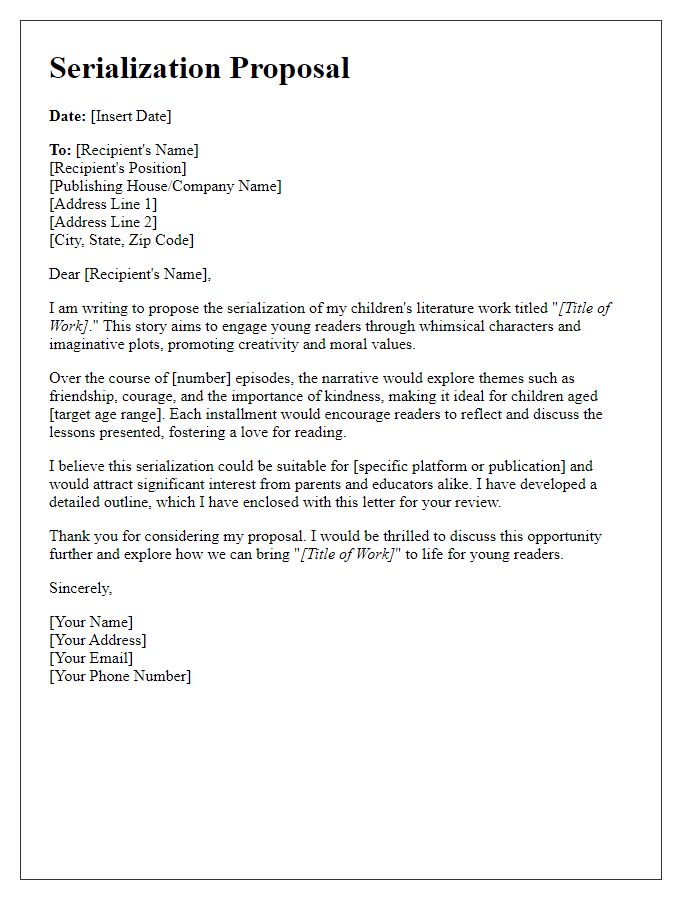
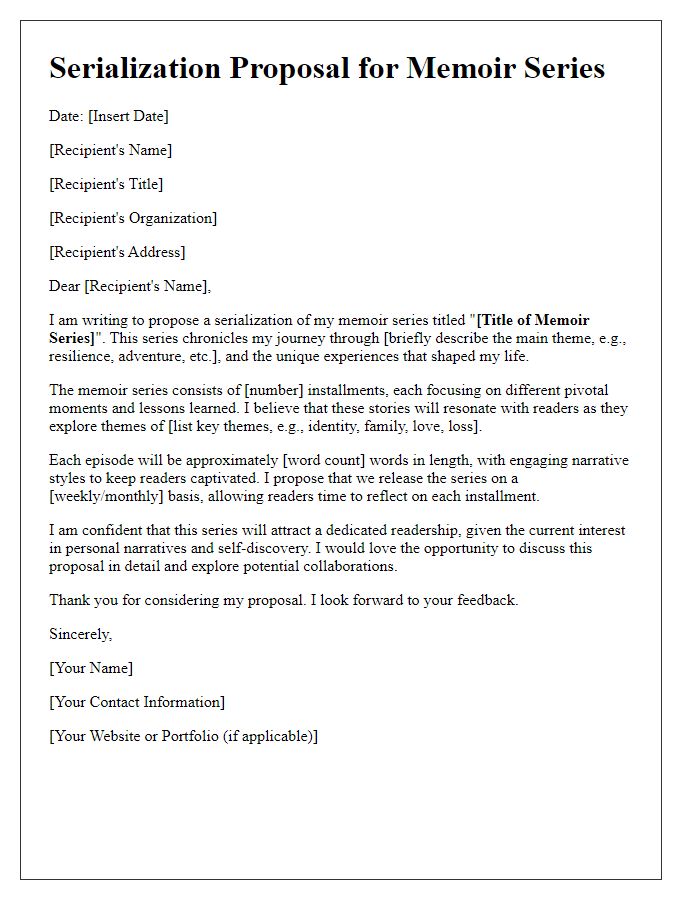
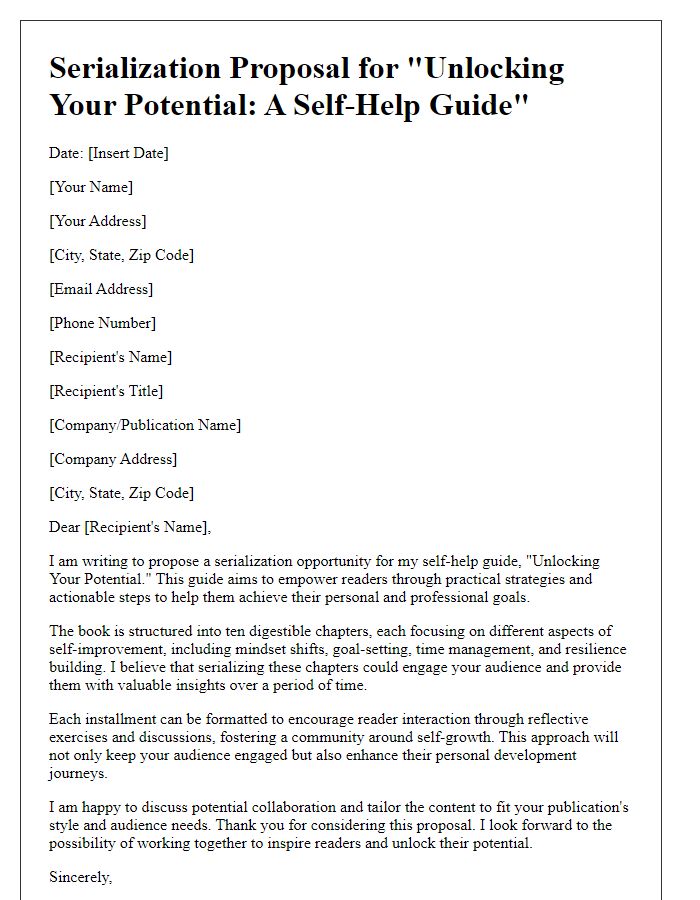
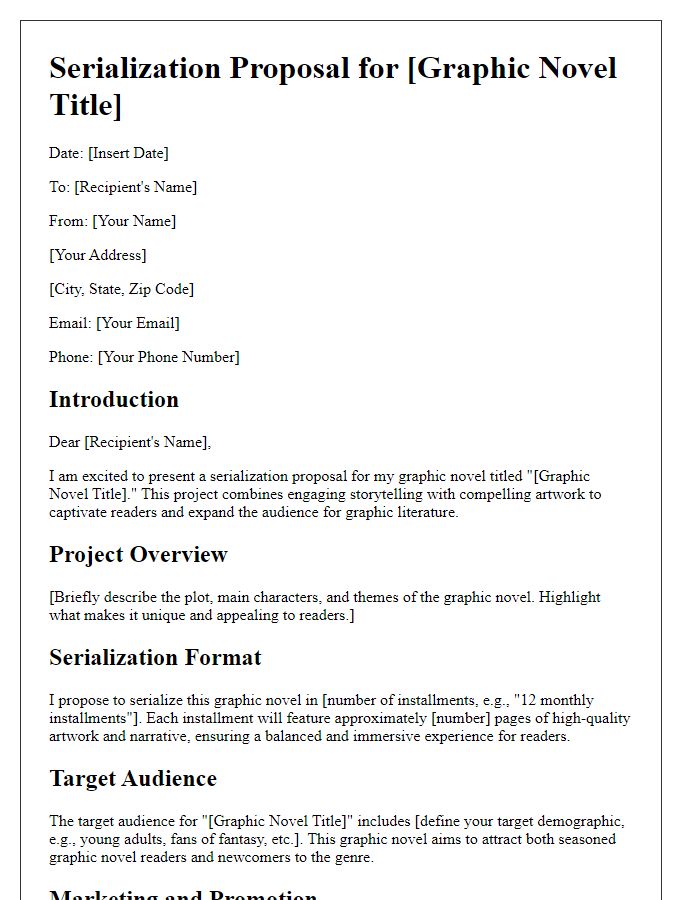
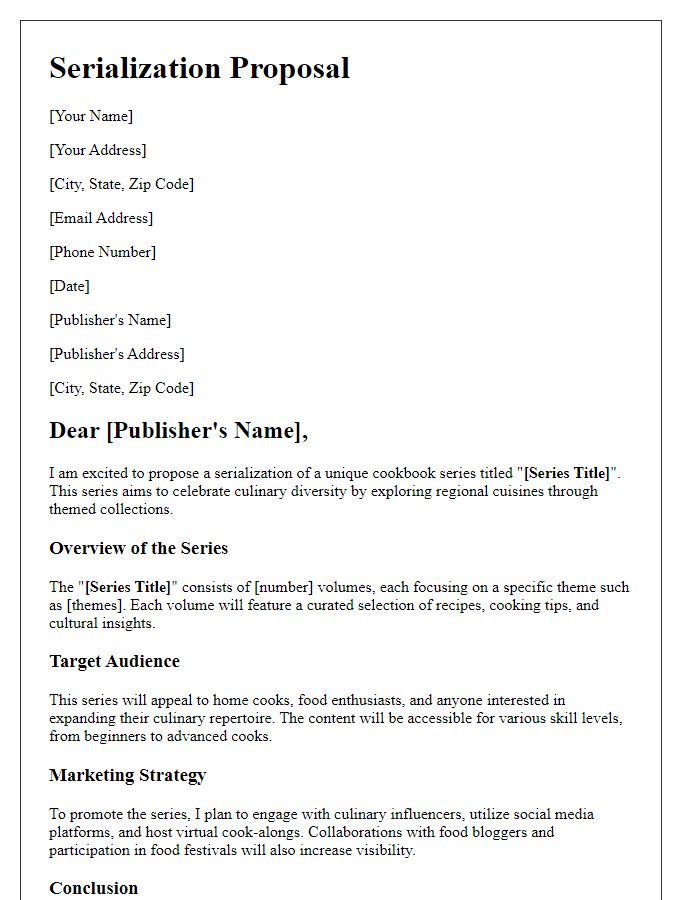

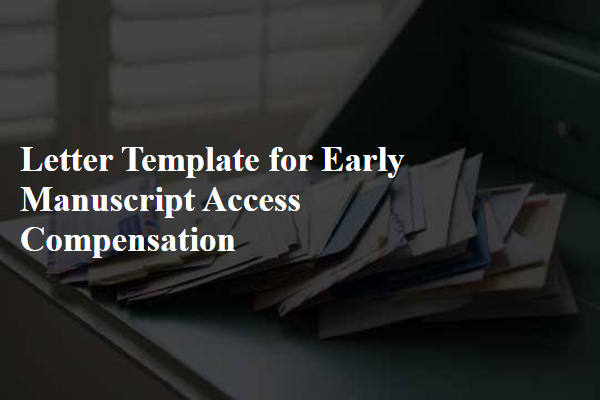
Comments